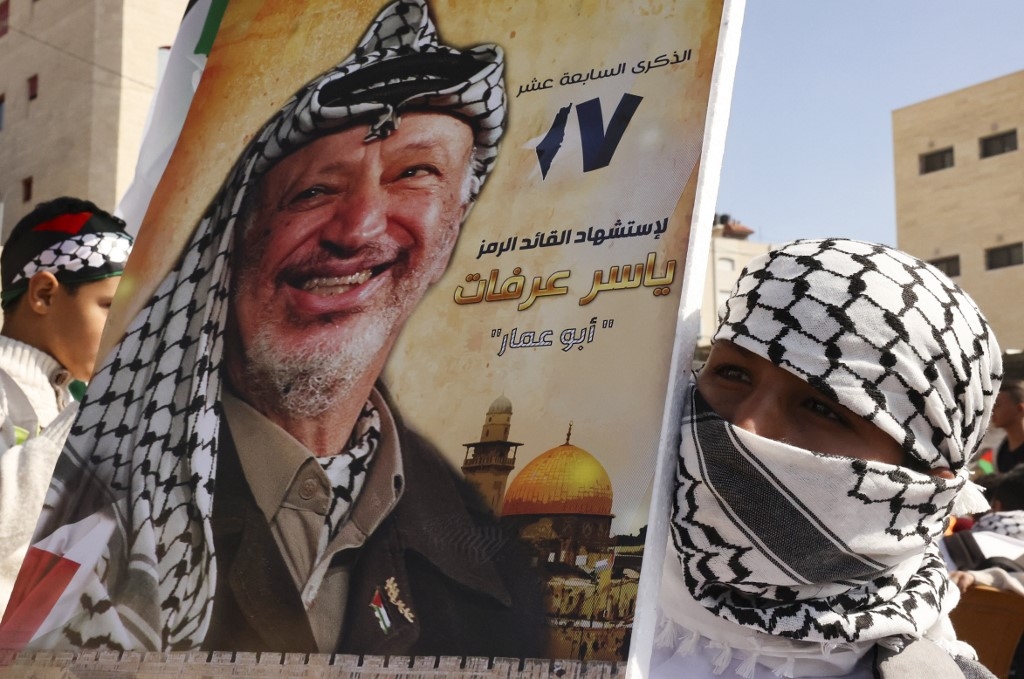Arabic press review: Arab rulers 'boycotted' Yasser Arafat in last months of his life

Arab rulers boycotted former Palestinian President Yasser Arafat in the last months of his life and no one contacted him, according to a leaked document related to investigations into his death.
The document, published by the Palestinian Safa news agency on Sunday, revealed that then Egyptian President Hosni Mubarak was the last Arab leader to call him, asking him to step down.
The leaked file reveals details about what leaders of the Palestinian Authority and Fatah movement said to the investigation committee, which was formed in October 2010, six years after Arafat’s death.
Nabil Abu Rudeineh, Arafat’s former adviser, said that Mubarak told Arafat: “The call may be recorded... and I advise you to hand over power and I know what I am talking about.”
According to Abu Rudeineh, no Arab president contacted Arafat thereafter, and they "completely abandoned" him.
New MEE newsletter: Jerusalem Dispatch
Sign up to get the latest insights and analysis on Israel-Palestine, alongside Turkey Unpacked and other MEE newsletters
The adviser said that Arafat requested some Arab leaders to provide the Palestinian Authority with money to pay salaries, but that “their responses were shameful" according to documents.
Arafat died in a hospital in France in November 2004 after developing stomach pains while at his headquarters in the West Bank city of Ramallah.
A 108-page report by the Swiss Institute found unnaturally high levels of polonium in Arafat's ribs and pelvis, and in soil stained with his decaying organs.
Suicide cases increase in Iraq
Iraq has recorded an increase in cases of suicide, especially among Iraqi youths, which analysts have attributed to instablity in the country, according to a report published by Al-Araby Al-Jadeed newspaper.
A spokesperson for the Iraqi High Commission for Human Rights (IHCHR), Sarmad Al-Badri, said that "the recent period witnessed a significant increase in suicides in the country", noting that "the statistics of the Ministry of Interior recorded more than 700 suicide cases, as well as unregistered cases, which occurred in the past year 2021”.
Badri added that "the youth is the largest group committing suicide" due to "the absence of civil rights and violations that are practised in several fields, in addition to the lack of services and the economic and social crises that affect society and whose impact primarily affect the youth".
The spokesperson laid responsibility for the uptick on the state, because it was "the primary party" that should provide support and opportunities to young people.
Badri called on the private sector to "carry out its role by implementing projects, providing job opportunities and benefiting from this significant group".
Iraqi authorities said that the increase in suicides were caused by various economic and social problems, most notably poverty, unemployment and the absence of hope for positive change, according to Al-Araby al-Jadeed.
One in five Jordanian children are smokers
Official figures in Jordan show that 17 percent of children and 82 percent of men are smokers, which is the highest percentage in the world, while the World Health Organisation (WHO) calls for measures to reduce this phenomenon, according to a report by the Jordanian Al-Ghad newspaper.
The WHO said that it exerted a lot of efforts to reduce the phenomenon of smoking in Jordan, but it failed to stop the entry of smoking materials used by children.
The organisation called for an increase in the prices of tobacco derivatives to reduce this problem.
Survey figures carried out by the WHO in Jordan showed that Jordan ranks first worldwide in terms of the number of smokers, as 82 percent of smokers are in the age group of 18 to 69 years and smoke traditional cigarettes, in addition to 15 percent who smoke electronic cigarettes.
As for children, the survey showed that the percentage of smokers reached 17 percent, while about 60 percent confirmed their desire to quit smoking.
*Arabic press review is a digest of news reports not independently verified as accurate by Middle East Eye.
If you need support in the UK, then the Samaritans can be contacted at [email protected] or on 116 123. In the US, please try the National Suicide Prevention Lifeline. For other countries, please see befrienders.org.
Middle East Eye delivers independent and unrivalled coverage and analysis of the Middle East, North Africa and beyond. To learn more about republishing this content and the associated fees, please fill out this form. More about MEE can be found here.

